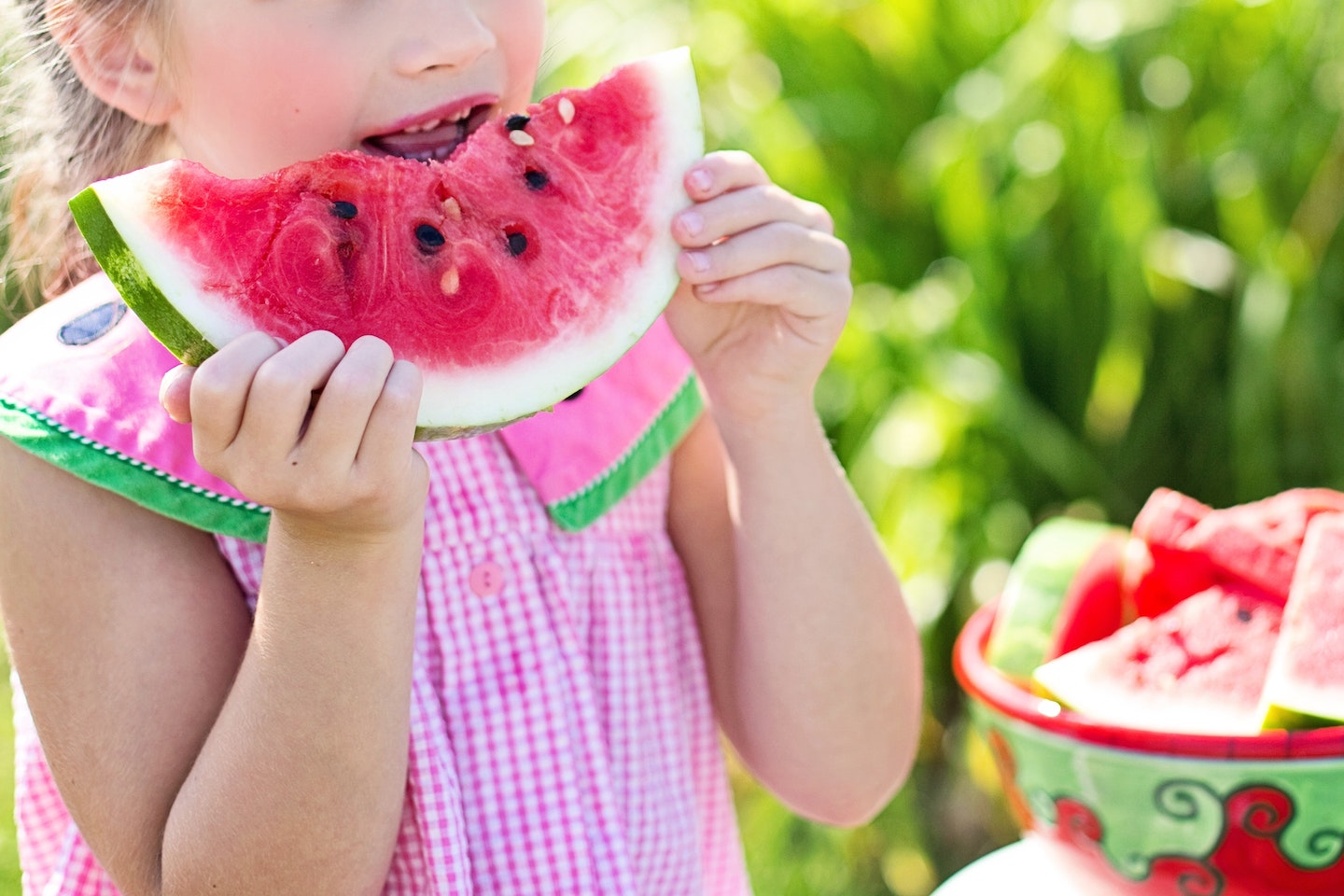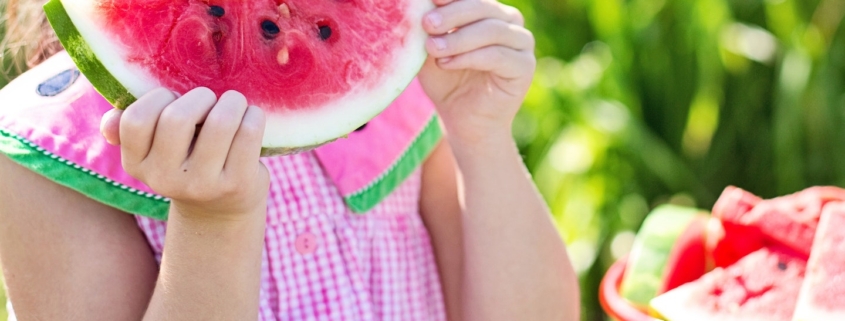Nurturing Young Minds! Teaching Your Kids the Importance of Nutrition
 Can you believe that it is already time to think about going back to school?
Can you believe that it is already time to think about going back to school?
As a parent, you are probably anxious thinking about your child returning to school and dropping all the healthy habits they picked up this summer. From play to eating habits, your child’s daily routine is going to be thrown for a loop. That is why it is so important to teach your child healthy habits now so they can try to adapt to the new school routine.
Teaching your children early on about healthy eating and nutrition can be the most influential because they haven’t been exposed to the incredible amount of misinformation that is out there yet. Setting a great example and giving your child an understanding of what foods will fuel their bodies can make a lasting impression that will last throughout their growing years and hopefully whole lives.
Healthy Habits to Teach Your Child
Teaching your child one small lesson at a time about nutritious eating and lifestyle can help make a lasting mark on them forever. Please follow some of my tips below if you have little ones at home and want to make a difference in their future!
Importance of Fruits and Veggies: Although some children have a love-hate relationship with fruits and vegetables, they are essential for their well-being and growth. Teach children about “eating the rainbow” and use some fun visuals. Different colors have different nutrient benefits and health advantages, so try to explain that eating as many colors as possible is best! Let them pick out two different “colors” for dinner, rather than asking them what kind of vegetable they would like. “5-a-day” is a good guide, so you can divide them up with a fruit in the morning, a fruit and veggie for snacks, and two vegetables for dinner. By using the color game, a child may be more likely to try a new fruit or vegetable they never would have previously tried!
Importance of Breakfast: Most people hear that breakfast is the most important meal of the day, but do you know why? It’s because your body needs fuel when you wake up to start your day and is the energy that your body needs to help you focus and concentrate and keep you alert. If you skip breakfast, you are more likely to lose energy early in the day and eat past fullness at lunchtime. Research has shown that eating a well-balanced breakfast improves mental clarity thus increasing performance in school. To ensure that this meal won’t be skipped, choose what you are going to have in the morning the night before!
Importance of MyPlate: Children should learn the food groups and know what “MyPlate” looks like. Visuals tend to be more effective for children as they may not understand just by listening. Show them that half of their plates should be filled with fruits and vegetables, a quarter with whole grains, a quarter with protein. Encourage milk consumption as milk builds strong bones which is important to teach the kids!
Importance of Exercise and Play: Instead of playing video and computer games, children need to become more physically active. Being involved in an organized sport or running around the neighborhood with friends are both great ways to exercise. Exercise helps their bodies to grow and be strong, gives them more energy, and will also increase their happiness and well-being. Sending the kids outside for half an hour is a great way to keep them motivated! Make exercise into a nightly family fun time if you don’t think your child is getting enough!
Good Nutrition Basics
Make it fun: Children have huge imaginations, put them to use! When teaching kids about a specific topic such as fruits and vegetables, why not make your own cooking tv show? Put your aprons on, get the ingredients and equipment out, and talk your child through the steps, having them be your assistant. Drawing, painting, and acting out any lesson will give the child a better chance of remembering what they learned rather than if you just sat them down with information. Have some fun!
Simplify it: You wouldn’t necessarily use the same language you use talking to an adult as you would a child, so remember to make concepts easier for them to understand by breaking them down. While it is great for a child to learn that calcium and vitamin D help to build strong teeth and bones, they don’t necessarily need to know about medical complications such as osteoporosis.
Use the real world: The world is a child’s playground. Have a scavenger hunt at the grocery store, go to your local farmer’s market, and have the child pick out produce they have never tried before, or teach them what they need for their growing bodies after they participate in a sports game.
Never say “can’t have” or “bad food”: These negative connotations with food and diet can also negatively affect them later in life such as with eating disorders and disordered eating habits.
Whether you are a parent or not, it’s important as an adult to teach children in your life how to be the best they can be and let them know their futures will be bright. The most important part of our lives is our health, and with a bright future comes a healthy one, the earlier, the better.


Leave a Reply
Want to join the discussion?Feel free to contribute!